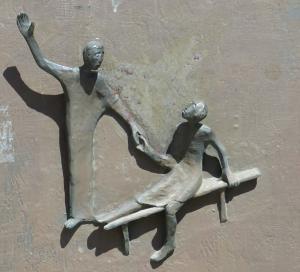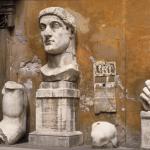
Knowledge of right and wrong is invaluable. Revelation helps us know what we cannot figure out for ourselves. Revelation also helps us learn things which, if we had the time and resources needed to explore them, we might eventually realize for ourselves, saving us time and effort so we can use our time to deal with other needs. Such knowledge is used by us in relation to the gnomic will, because it gives us information to use in our deliberations. It is possible to do right without such knowledge, either by accident, or by natural inclination. Indeed, if we will naturally, instead of deliberately, that is, if we act in accordance to what innate nature suggests, we will do what is good; the problem is most of us only know how to act in relation to deliberation. This leads us to act unnaturally, against our natural inclinations, and since our knowledge is limited, we often make bad choices and end up doing wrong. The more we act in relation to the gnomic will, the more we find ourselves acting in ways contrary to our innate nature, and the more we act contrary to our nature, the more we establish habits which direct and guide us in imitation of nature. This is why we often confuse our actions, which seem to be done out of instinct, to being natural, when they really are done out of habit. We must purify ourselves from all such habits, and learn how to engage the world according to nature; this is what self-denial is about, the elimination of the badly constructed habits and the false sense of self which emerges from them so that we can see the innate, good person which lay behind them.
When we can do what is good, and do it naturally, we will be able to attain the good which revelation teaches us to pursue. If, on the other hand, we have bad habits to overcome, we will have to engage our gnomic will, and use revelation to guide and direct us so as to know what it is we should do; then, we can work against our bad habits and slowly find ourselves once again able to act naturally without deliberation,, and so, without the knowledge given to us from revelation. But if we receive and accept such revelation, and ignore it, that is, do not do what it encourages us to do, we will find ourselves worse off than those who acted wrongly out of ignorance. What is important is not knowledge given to us from revelation, but the fulfillment of revelation, with revelation being the “law” revealed to us by God:
For God shows no partiality. All who have sinned without the law will also perish without the law, and all who have sinned under the law will be judged by the law. For it is not the hearers of the law who are righteous before God, but the doers of the law who will be justified (Rom. 2:11-13 RSV).
The law is invaluable, but it is only a tool; it is invaluable because of the good it shows us, and the grace which is connected with such it, but we must not consider it an end in and of itself. The doers of the law are justified because they embrace the natural goodness intended by the law. It is when we embrace that nature, we are able to receive the fullness of grace. However, we must also understand Paul, in other places, says it is not works, but faith, which saves us. Paul does not contradict himself in these two statements. Instead, he is dealing with two different issues. Faith justifies us because faith motivates us to accept revelation and the grace which God offers us so that we can return to our natural, innate goodness. That is, for Paul, right faith is connected with right action, and is not seen independent from it. This is why James is able to use Paul’s example of Abraham and show how Abraham is justified by faith because he followed and obeyed God through that faith.
Faith and works go together, and must not be artificially separated from each other, just as Paul’s various statements concerning justification must be brought together instead of separated so as to provide proper understanding of what he intended with his words. Paul is clear, God will judge everyone for what is in their hearts, what they have seeded into it by their actions, and that judgment will be done by Jesus (cf. Rom. 2:16). That judgment will separate the sheep from the goats, the wheat from the chaff, as all our sin will be taken by Jesus and cast into the fire which was made for it.
The Christian message is the good news that Jesus came into the world to heal us from all our infirmities, including, and especially, our sin. “And he went about all Galilee, teaching in their synagogues and preaching the gospel of the kingdom and healing every disease and every infirmity among the people” (Matt. 4:23 RSV). As he was able to heal people of their physical ailments, he was also able to heal them from their spiritual infirmities, which is why he constantly told those whom he healed that their sins had been forgiven.
When we are justified, we will be justified by Jesus. He will come again to judge the living and the dead, not to condemn us, but to separate us from our sin (if we let him) so that we can be free from its bondage, attain our natural goodness, and then find our place in the kingdom of God. Sin deserves condemnation because it corrupts the good. Nonetheless, such condemnation must be done properly, so that the good which has been corrupted can be freed from its influence and come back to its own instead of being annihilated. This is why Jesus, as the just judge, will bring mercy and grace with his judgment: sin, with its desire to destroy the good, will not have the final word, but rather the good which it sought to corrupt and destroy will be set free, healed from all the harm sin has done to it, and then be given its proper place in the kingdom of God.
Stay in touch! Like A Little Bit of Nothing on Facebook.
If you liked what you read, please consider sharing it with your friends and family!
















